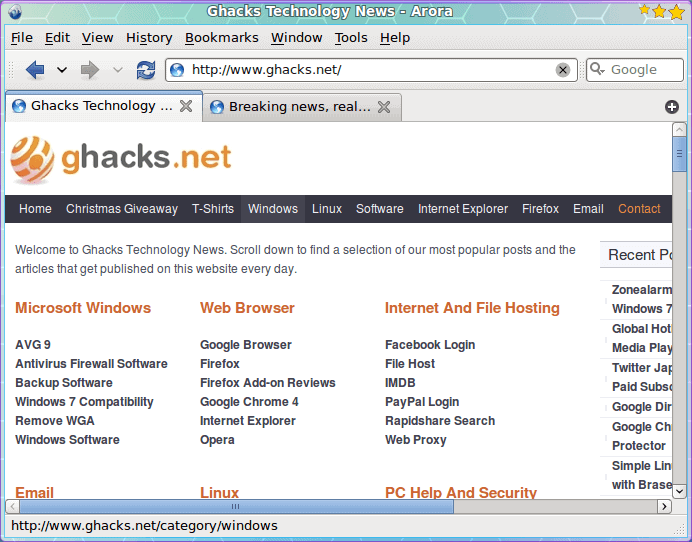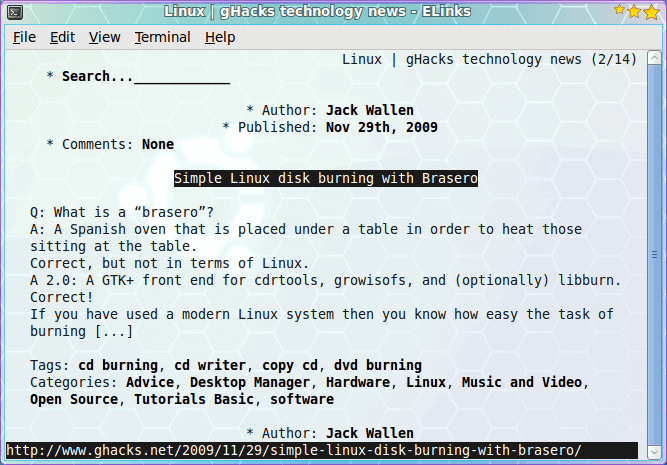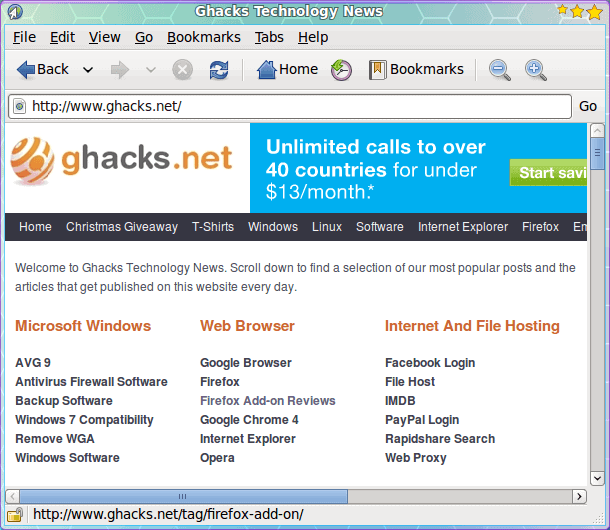Alternative Linux web browsers

You know Firefox like the back of your hand. You've heard tale of Chrome and you know KDE has tried to pawn Konqueror off as their default browser. In the distance you hear Opera calling your name and IE4Lin tries to woo you to the dark side.
Browsers, the lot of them. You can't go about your daily digital life without one, and sometimes it's just hard to tell which is the best for the job.
But did you know there were even more alternatives to choose from? Many of them are one-trick ponies and some of them will never see the light of day on the average (or even somewhat above-average users' desktop). But that doesn't mean that these alternatives shouldn't get a brief spot in the limelight.
In this article I am going to introduce you to some of those alternative web browsers and show you what they have to offer. I will skip over the installation of these browsers as you will most likely find them in your distributions' repositories. These browsers will be in no certain order.
Arora

Arora is a light-weight, cross-platform web browser (so long as the platform will run Qt) that offers many of the features you have come to love on your browser (and then some). Arora uses the QTWebKit port of the WebKit layout engin. The feature list looks like:
- Fast startup
- Desktop integration
- Smart location bar
- Session management
- Privacy
- Search engine management
- Flash plugin support
- Download manager
- Tools for web developers
- Translations for thirty languages.
Elinks

I can't help but add a text-based web browser to this list. Elinks hearkens back to my old Lynx days where browsing the web was not interrupted by images, ads, and flash. Why would you want to use such a browser? Simple: Elinks is fast. Not Chrome fast...even faster. Elinks is so fast you will miss your pages load if you blink - that kind of fast. But remember, you only get text here. You use Elinks from within a terminal window. Open one up and enter the command elinks. Hit the <Esc> key and then enter a url. Simple. Fast. What more do you want from the web? ;-)
Epiphany

Epiphany is supposed to be the web browser for the GNOME desktop. It isn't really, but it does try. Epiphany lives somewhere between Elinks and Arora. It's not text-only, but it will handle your fancy-shmancy plugins. Epiphany lets you concentrate on the content, not the application displaying the content.
Epiphany does offer a few nice features:
- Security
- Customizable interface
- Smart bookmarks
- Extensions and plugins
I was pleasantly surprised that Epiphany handled, out of the box, Flash plugins (and handled them well.)
Final thoughts
There you go: Three browsers you most likely have never heard of nor ever tried. I have run the gamut of browsers and I can say that each of the above browsers certainly has their place in the landscape of the internet. Will any of them threaten the monsters of the ball? Absolutely not. Does that mean you shouldn't give them a try? No, you definitely should...especially if you've never experienced the web in its purest, text-only form.
I would highly recommend you give one of these browsers a go. You might find your new favorite app!



















Any text browsers which support JavaScript?
elinks uses mozilla’s spidermonkey for limited javascript support.
links2 also has some javascript support, I believe.
w3m is definitely worth a mention too. Text based, but also supports images.
I vote for Konqueror, since the lion’s share of publicity is given to MS Internet Exploder, Mozilla Firefox, and Apple’s Safari. Konqueror is what Windows Explorer tried (and failed) to be, and it’s a lot more secure and versatile. The KIOslaves are a big part of what make it so. You can do URL’s like smb://, sftp://, nfs://, and so on. I use sftp:// a whole lot to access my file servers. This works great with the Kerberos back-end that I installed a few years back. Totally GUI, and the users just see it as “oh, it’s like the Web, but with sftp! Cool!”
You also have the KDE 4 plasma browser widget. Now you can browse without “opening a browser”
uzbl – Webkit based browser
From the website:
Uzbl follows the UNIX philosophy – “Write programs that do one thing and do it well. Write programs to work together. Write programs to handle text streams, because that is a universal interface.”
It’s like the anti-firefox.
netsurf – -Small portable web browser with CSS and Unicode support
kazehakase – GTK+-based web browser that allows pluggable rendering engines
conkeror – keyboard focused web browser with Emacs look and feel
dillo – Small and fast web browser
Midori is a lightweight web browser based on WebKit similar to Arora
konqueror – KDE 4’s advanced file manager, web browser and document viewer
Then of course we all know the big dogs, Firefox, Opera, Chrome; and Seamonkey is still hanging on to life.
Uhmm, were you saving the rest for Christmas ? Jack, LOL !
How about rekouq.
short list there Jack.
Dillo, the GTK wrapped lynx, with all it’s speed, and limitations. a good option if bloat ware like flash, images, videos, audio, piss poor design table based layouts and security hole nightmare javascript, isn’t important.
Epiphany. [ on a par with galleon most likely ]
links [ the original close of lynx. ;) ]
The other Mozilla browser, Seamonkey. [ 2.0 gets even more like the over rated firefox. ]
there will be more browsers to come.